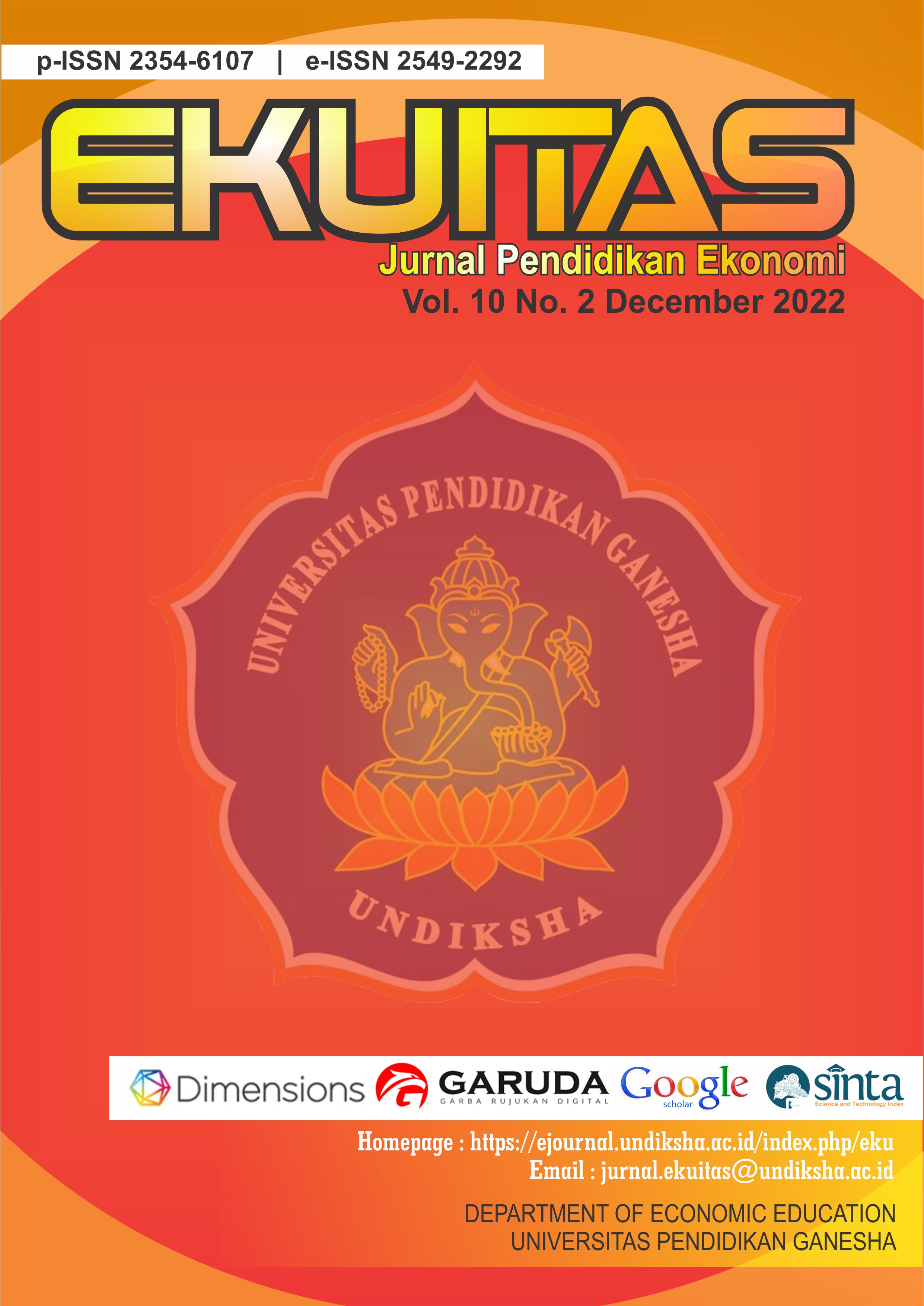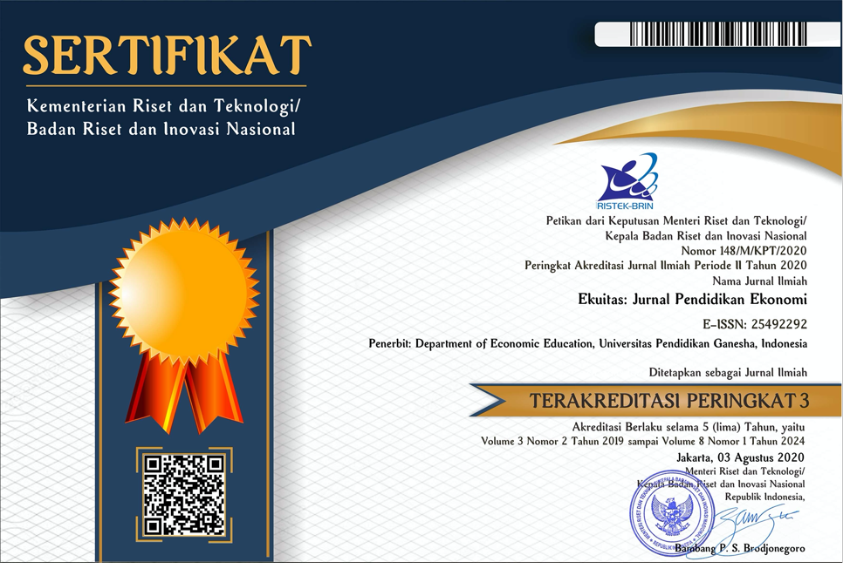Optimization of Village Sustainable Development Goals with Creative Tourism in Selumbung Village, Manggis, Karangasem
DOI:
https://doi.org/10.23887/ekuitas.v10i2.54219Keywords:
Creative tourism, community empowerment, innovationAbstract
One sector which is the foundation for improving the national economy is tourism. Lack of innovation and creativity causes many tourist destinations to have not differences and uniqueness with other tourist destinations. However, there were many opportunities from villages that can be developed and then integrated with each other in order to support the uniqueness of an area. The types of this research is descriptive qualitative. The research methods used are observation, interview, documentation and internet access. The purpose of this research is to develop community participation so that tourism development will be more effective and efficient because the community will be more responsible for the sustainability of tourism. So the Penta helix Collaboration is needed in realizing village empowerment holistically. So that creative tourism innovation is realized to increase village income.
References
Bungin, Burhan (ED). (2017.) Metodologi Penelitian Kualitatif. Depok : Raja Grafindo Persada.
Checkland, Peter. (1999). Systems Thinking, Systems Practice: Includes a 30-year Retrospective. Chichester, England: John Wiley & Sons.
Dantes, Nyoman. (2012). Metode Penelitian. Yogyakarta : Andi Offset.
Eriyanto. (2011). Analisis (Pengantar Metodologi untuk Ilmu Komunikasi dan Ilmu-Ilmu Sosial Lainnya). Jakarta : Prenadamedia Grup.
Fitriana, A. N., I. Noor, dan A. Hayat. (2014). Pengembangan Industri Kreatif Di Kota Batu (Studi Tentang Industri Kreatif Sektor Kerajinan Di Kota Batu). Jurnal Administrasi Publik, 2(2), 281-286.
Friedman, J. (1992). Empowerment The Politics of Alternative Development. Blackwell Publishers, Cambridge, USA.
Gelgel, I Putu. (2016). Industri Pariwisata Indonesia. Yogyakarta : Aditya Media.
Hamdi, Muchlis. (2013). Kebijakan Publik : Proses, Analisis, dan Partisipasi. Yogyakarta: Graha Ilmu.
Iskandar (2010). Metodologi Penelitian Pendidikan dan Sosial. Jakarta : Gaung Persada Press.
Islamy, Muh. Irfan. (2018). Kebijakan Publik. Jakarta : Universitas Terbuka Press.
Lee, J.W. & Brahmasrene, T. (2014). Emissions and Economic Growth: Evidence from a Panel of ASEAN. Global Economic Review. Perspectives on East Asian Economies and Industries. New York : ICT eo.
Liker, Jefrey K. (2010). Culture and Policy. Jakarta : Esensi.
Mahmud. (2011). Metode Penelitian. Bandung : CV Pustaka Setia.
Marbun, S.F. (2012). Hukum Administrasi Negara. Yogyakarta : Agency Putera.
Mohamed, I. & Moradi, L. (2011). A Model of E-Tourism Satisfaction Factors for Foreign Tourists. Australia: Adelaide corp.
Ridwan, Ilham, Asdar Dollo, dan A. Andriyani. (2019). Implementasi Pendekatan Participatory Rural Appraisal pada Program Pelatihan. Journal of Nonformal Education and Community Empowerment, 3(2), 88-94.
Savitri, Enni dan Riska Natariasari. (2021). Percepatan Pendapatan Petani Sawit Melalui Peningkatan Kinerja Pemasaran Dan Strategi Bersaing. Riau Journal Of Empowerment. 4(1),41-47.
Sumodiningrat, G. (1999). Pemberdayaan Masyarakat dan Jaring Pengaman Sosial. Gramedia, Jakarta.
Weerawardena, J. (2003). Exploring the role of market learning capability in competitive strategy. European Journal of Marketing, 37(3/4), 407-429.
Downloads
Published
How to Cite
Issue
Section
License

This work is licensed under a Creative Commons Attribution-ShareAlike 4.0 International License.








